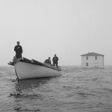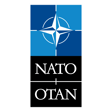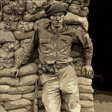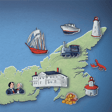Become a Creator today!Start creating today - Share your story with the world!
Start for free
00:00:00
00:00:01

India and Canada: Bonds of Empire
Winner of the 2023 Canadian Ethnic Media Award for Podcast Feature. When the British and French fought for global domination in the Age of Empire, Canada and India became battlegrounds, colonies, and sources of trade and wealth. International relations scholar Madhuparna Gupta and historical non-fiction author Stephen Bown discuss the colonial connections between Canada and India with host Kate Jaimet, senior editor of Canada's History magazine.
Transcript
Introduction to Canada's History Podcast
00:00:05
Speaker
Welcome to Canada's Histories, Stories Behind the History Podcast. I'm Kate Jamit, Senior Editor of Canada's History Magazine. In this podcast, we take a closer look at some of the stories featured in our award-winning print publication.
Colonial Connections: Canada and India
00:00:19
Speaker
In our April-May issue, we feature a story about the colonial connections between Canada and India by Madhoparna Gupta. Madhoparna is an instructor in the Department of Global Development Studies at St. Mary's University in Halifax. She received her PhD in international relations from Jadavpur University in Kolkata, India, and worked as an assistant professor of political science in India before immigrating to Canada. Madhoparna, welcome to the podcast.
00:00:48
Speaker
Thank you, Kate. I look forward to hear from you all. Thank you for joining us. And we're also joined by Stephen Bowne. Stephen is an author who has written 10 books on the history of exploration, science, and ideas, and won numerous awards. His most recent book, winner of the 2021 JW Defoe Prize, is The Company, The Rise and Fall of the Hudson's Bay Empire. Stephen, welcome to the podcast. Thank you. It's my pleasure to be here.
Personal Inspirations and Observations
00:01:14
Speaker
So, Madhuparna, I'd like to start by asking you, how did you get interested in researching the colonial connections between Canada and India?
00:01:22
Speaker
Well, my research interest primarily began from my landing in Halifax into 2019, October, and when I saw this huge University of Dalhousie University, which was established by none other than Lord Dalhousie, and also while visiting around the streets of Halifax, primarily the Lucknow Street,
00:01:44
Speaker
the Wellington Street and also the suburbs of Nova Scotia, like the cities of Avarran, Hastings, Amherst. So that made me much more curious to know what is going here. I mean, back in India, we also have similar streets like Dalhousie Square, Cornwallis Avenue, Cornwallis Streets, Amherst Streets, Minto Park and so on and so forth.
Global Impact of Empires
00:02:09
Speaker
And also the impressive buildings of Halifax, the architectural styles, the broad pillars and columns. So that have, all these have peculiar resemblance with that of Calcutta, Bombay, and Madras, and other colonial cities, where the East India Company had the profound basis in the earlier times. So that prompted me, that where lies the connection. So when I started scratching, more and more doors started opening up one after the other.
00:02:39
Speaker
And also at the back of my mind, I also came to realize that, okay, I'm also equally connected with this entire narrative because of my upbringing in Calcutta, primarily because of my schooling. I started in St. John's Daoistician Girls High Secondary School. It was established in 1893 by the Christian missionaries, and it was located in the junction between Lansdowne Road and Mentor Park.
00:03:07
Speaker
That's really interesting. I think a lot of our Canadian listeners would recognize some of those names like Dalhousie and Minto and Lansdowne, but we might not be aware of the Indian connection. Stephen? I was just going to comment that I think it's absolutely fascinating what you've done, and I've not seen it done that way before, drawing the connections between the colonial outposts of the British Empire for all of us who are living in the remnants of that empire.
00:03:34
Speaker
I just find it very intriguing that those same, Aina never knew that those same names were all over India. And it's just, you know, one brief general comment on empire in general. I mean, you know, when you're traveling around Europe, you see all the, you know, the roads and the bathhouses and the aqueducts, the remnants of the Roman Empire for when it had conquered that. And if you're traveling around Mexico, you see all these Aztec pyramids that were all built when the Aztec Empire expanded and conquered all of Mexico and took that land over.
00:04:04
Speaker
you know, the Middle East and North Africa and into Eastern Europe is a little with mosques from when the Islamic armies were taking over. And it's just interesting that the remnants of empire are
Exploration Era of the 1500s-1600s
00:04:18
Speaker
everywhere. We all kind of live amongst the decaying social and architectural infrastructure of, well, in our case now it's the British Empire, but
00:04:30
Speaker
Yeah, I think you're right. I think these colonial connections are totally fascinating and we're going to get to some more of them. But first of all, if you don't mind, I'd like to just step back for a second and set the scene for our listeners. So we're in the 1500s, the 1600s, the great age of sale.
00:04:47
Speaker
These navigators, European navigators, are sailing all around the globe. They're encountering different peoples, different countries. When they get to the Indian subcontinent, Madhuparna, what kind of society do they encounter there?
Indian Society and Trade Networks
00:05:00
Speaker
What does this society look like at that time? Yes, when the European traders who later turned colonizers, they appeared, they arrived in India around from 15th century onwards.
00:05:15
Speaker
India at the time was already flourished, was already established at that point of time. Given that fact that India has a long antiquity of over 2,500 years, starting from the Indus Valley Civilization. And by that time, Indian Empire was basically stretched from Afghanistan at the north to Burma, which is present day called Myanmar. So India, at that point of time, India, and even down to the window till the British appeared,
00:05:42
Speaker
came to India. So India was generally a fragment of several imperial kings and the respective kingdoms. So from the very beginning, from the Morgeans, the Magadhan dynasties, the Gupta dynasties, in the north, we have the Pallavas, the Rashuputas in the south, we have the Pallas and Senas in the east, and we have the Rashputs, the Marathas in the west.
00:06:11
Speaker
So India had a very rich connection because of not only, you know, at the time there was a territorial conquest outside India, but it was generally a kind of maritime trade and interest that India established with Southeast Asia, with East Asia, Middle East, Central Asia. Because of India's export of silk goods, cotton goods, ivories, spices,
00:06:37
Speaker
And you know saffron, saffron is the most exquisite, the richest, very expensive spice which is manufactured in Kashmir.
00:06:47
Speaker
So the spies, even sternometers, it's the most expensive ones. So the traders from all parts around the world used to come over and have trade with India for acquiring this type of goods. So India used to have people, travelers and traders from Italy, from Albania, Morocco, from Spain, Central Asia, Southeast Asia, China, so on and so forth. So India was basically a kind of cosmopolitan city.
00:07:16
Speaker
said, empire at that point of time. And around the fact, Indian art, culture, civilization, medicine, history, they all have, have, have attracted the foreigners to come and acquire that knowledge. So it was basically an acquisition, a very kind of, you know, a melting pot for which India was acquiring at that point of time.
00:07:36
Speaker
And also, with the arrival of the Mughals in 1526, established the Mughal dynasty. So by that time, when the Mughals came to India, the Islamic civilization had already started flourishing from early 11th century onwards.
European Exploration Strategies
00:07:54
Speaker
And by that time you know from the from the from the Toledo and the Spain the Spanish city of Toledo to to to Delia that point of time there's a whole a whole this entire area was under this Islamic civilization. And along with that you know flourished architecture
00:08:11
Speaker
Islamic architecture, you know, along with the Hindu temples, mosques, they were already there. And therefore, when the British, when the first landed the Portuguese in 1496 by Vasco da Gama, so from 1496 onwards, and I would like to mention here that it is not that Vasco da Gama was the first European,
00:08:38
Speaker
I mean Alexander the Great a long time back in 324 had already met his inroads into northern India. And also we also have a Greek educational scholars like Megasthenas and others have already knew about India and people at the west knew about India through their writings, their travelogues.
00:09:01
Speaker
So therefore, India was become a kind of very attractive destinations. And I would like to connect, point out here, the Portuguese King, Emperor Manuel I, he commissioned two different expeditions. One would come to North America via this Northwest Passage.
00:09:21
Speaker
and another which went down to fire cape of good hope to India. So with the flourishing of Portuguese trade and there came the Dutch, they also established their respective basis and this gave this impetus for the British to enter into this uncharted territory. So therefore, because of this royal proclamation that the East India Company was established in 1600,
00:09:50
Speaker
It had this mission that's to acquire the properties and the resources that India has or already had, which it's already famous for.
European Encounters in North America
00:10:00
Speaker
Let me stop you there at the East India Company because we're going to come back to the East India Company. But now that we've set the scene for India and we've seen what it looked like at the time, Stephen, I'm going to ask you,
00:10:12
Speaker
The same question for North America. So what did North America look like when the European navigators first encountered that area of the world, and especially the northern part of North America, which later became Canada? Well, as you were just mentioning, there were very different places. Like, by the part I was just mentioning, you know, all of India was a densely populated commercial region of the world with
00:10:40
Speaker
ships and social and economic connections throughout the entire region. That was quite different to North America, which at the time, before European colonization, had a much more limited population density, particularly in the north where the Hudson's Bay Company went on those coasts of Hudson's Bay. I believe that the standard accepted population figure for all of
00:11:07
Speaker
Northern and generally Western North America at the time was around 500,000. And so there were more commercial networks than is generally acknowledged. You know, on river systems, they find, you know, items of trade such as different furs and different stones for different purposes and food has been traded throughout, you know, Central and Western North America, but it was not on the same scale because there was not the same population density.
00:11:36
Speaker
And so when the Hudson's Bay Company came, they were complete infants in this land. They knew absolutely nothing. They didn't know how to survive. They didn't know how to get any food. And getting food was a serious concern for them. You say, imagine these people, whether they're going to India or whether they're going to North America.
00:11:53
Speaker
This is
00:12:09
Speaker
foolish dragon symbols on them and oceans that don't exist and islands that don't exist. And they set off for months at a time, months at a time. The route to India, I mean, 10 to 20% of the people in any of those voyages would routinely die of disease or scurvy and other things just to get there. And that was a little bit less to get to North America just because of a shorter distance. But when those sailors arrived on the coast, they were not in good health. And so
00:12:37
Speaker
The first thing they had to do was to make cultural inroads into the local population, which generally had a seasonal occupation of the coastline. And that involved learning the language, marrying into those societies. The Hudson's Bay Company people didn't go home each year. They often signed seven year contracts. So just to get there was so difficult that when they were there, they remained there and they started their families there. And they began small communities on the coast of mixed heritage, genetic and
00:13:06
Speaker
cultural heritage that began.
Indigenous Role in Trade
00:13:08
Speaker
And that's the genesis of the Hudson's Bay Company's workforce with the integration of cultures and societies in that region. And that's how the trade was spread. And for the first hundred and some years, the company never actually left its outposts along the frigid coast of the bay. They remained there kind of like wholesale distribution centers. Well, the retail aspect of the trade was entirely controlled and run by indigenous business enterprises that
00:13:35
Speaker
pushed the trade as far west as the Rocky Mountains and as far south into the northern United States and as far north into the Arctic. But that was not controlled by the company. That was controlled by certain trading captains who for many generations directed the trade and brought it to the company's outposts.
00:13:54
Speaker
That's really interesting, Steven. And I think it's true that Canadians often don't realize the rule that Indigenous people played not only in supplying the FERS, but really in controlling the trade routes and the trade networks in the interior. I'd just like to give a bit of context to our readers about these trading companies.
00:14:13
Speaker
So the East India Company and the Hudson Bay Company were both joint stock companies, commercial enterprises. They were founded in London, England. The East India Company or EIC in 1600 and the Hudson's Bay Company in 1670. And they were each given a royal charter. So this meant that the king or the queen gave them a monopoly on trade in a certain area of the world. So for the Hudson's Bay Company, it was obviously Hudson's Bay, the northwest of what later became Canada.
00:14:42
Speaker
And for the East Indies Company, it was around India in the Indian Ocean and in the area around that area. So Madhuparna, in India, as we mentioned, it began as a trading company, but that somehow over the centuries evolved into conquest and colonization.
Colonial Expansion Strategies
00:15:01
Speaker
Can you explain to us a little bit how did this original intention of trade transform into conquest war colonization?
00:15:12
Speaker
Yeah, that's a very interesting question. Kate, you have raised. So the thing is, as I was talking to you, the Mughal Empire, the Mughal Empire, they were much more interested in establishing land route corridors from the north. So from the southern Indian point of view, there was this coast where basically left unguarded. So that prompted some of this European traders to appear in this
00:15:40
Speaker
and establish their basis one after the other by generally by securing the grants from the emperor. And at the time the East India Company appeared,
00:15:56
Speaker
This period was very crucial for India because there was a gradual degeneration, there was a gradual disintegration of this broad, this vast Mughal empire. So at that point of time, because given this, you know, the Central Administration weakness, so there was the riving of the local chifters, local rulers who were earlier remaining and submissive to this, you know, this Mughal rule. Now they were getting prominent.
00:16:24
Speaker
and they were in search of their preponderance against the Mughals. So, both the British as well as subsequently the French, you know, they exploited this kind of connection. They allied with the local rulers to gain prominence for each other's marketless policies.
00:16:44
Speaker
I mean, in a similar way, during the Cold War, when the US and Soviet Union allied, they made alliance with the developing world and they raged proxy wars. In a similar manner, the French and the British, they also established nexus with the local rulers to
00:17:05
Speaker
established their basis and the clash of this inter-imperial conquest, these were taken sides by the British as well as the French. So that led to the genesis of the Anglo-French rivalries.
00:17:21
Speaker
and this Anglo-French rivalry and then we all know that Anglo-French rivalry it has a very huge context because in Europe the very English British and the French they were taking long-time rivals for several centuries and so and being you know the being the being the been the chief traders as well as colonizers they have
00:17:40
Speaker
they have the basis in Mauritius, in Sudan, in the Middle East and other areas. So whenever the British contested with French in Europe, they had the reverberations felt both in Canada, in Mauritius and elsewhere and along with India.
00:17:58
Speaker
So, in this way, the British, they secured their bases by securing exclusive land rights by which they were given unconditional supremacy to acquire lands to go for trade because of the absence of Afafani-strong base by which they could fight against the British. Basically, these rulers were fighting individually.
00:18:28
Speaker
So that created a kind of trouble, and that gave the British an added advantage by securing their bases one after the other. So gradually they established Madras as their headquarters, thereafter Bengal, thereafter Bombay, and established their bases. And I would like to tell here, the Mughals had at the seaports in Surat Masuli Patnam, Negha Patnam,
00:18:54
Speaker
by which they used to have overseas trade. So both the British, the French, and subsequently, and before that, the Dutch, the Portuguese, the Danish, they also established their bases in these similar areas, in Surat Masoli Patna, so that because of their access to the land combined with the sea routes. But in the similar manner, you know, Hartson's Bay and the new front were established along the shores of St. Lawrence and the Hartson's Bay.
00:19:18
Speaker
Similarly, likewise, this Indian Ocean was given, was acted as a huge bridge builder by which they could have the easy access to the land routes to acquire resources from back home from Europe. So that is why this was the beginning of this consolidation of the British Empire. So one after the other, we find by acquiring Madras, they acquired Bengal in 1757, Bombay 1760, Pondicherry. And in the similar manner, the British acquiring
00:19:48
Speaker
according to the French colonies one after the other around the Nova Scotia. That's a really interesting parallel. And Stephen, so stepping away a little bit from the Hudson Bay Company, when we look at what England and France as colonial powers were doing in North America, it seems like there were some similarities, you know, they were having alliances with different indigenous
00:20:09
Speaker
First Nations and conducting their wars in alliance with those nations on that North American territory. Can you speak to that a little bit? Yeah. And I thought I would just address the previous discussion just a little bit. The reason why the British ships were able to get involved in the military aspects of the slowly disintegrating empire in India
00:20:37
Speaker
was that they were so heavily armed when they left their home ports, you know, with their own internecine warfares, you know, Dutch, Portuguese, English, French, they're all at war, and they would be attacking each other's ships en route, and there were so many pirates along the route. I'd imagine how to get there, all the way down the coast of Africa, around the Cape of Good Hope, up along the coast of Africa, across the Indian Ocean. These are dangerous areas to be going with. A lot of piracy, a lot of commerce was in there, and so those ships had
00:21:06
Speaker
lot of soldiers on them, people trained and guns, cannons, swords, everything you can imagine that they had. And so when they came to India, they were armed and they began functioning a little bit as mercenaries. And that's why they were able to be drawn in. People were drawing them into local politics because of the superior military technology was providing advantages to people. And so that didn't happen to anything in the Hudson's Bay Company to the same extent,
00:21:37
Speaker
The Hudson Bay Company never had a military aspect to it. Right, sure. But apart from the Hudson Bay Company, England and France did fight each other in Acadia and in New France in a similar way as they did in India, would you say?
00:21:53
Speaker
Yeah, I just wanted to draw the distinction that that didn't have anything to do specifically with the Monopoly Hudson's Bay Company. That aspect of conflict had more to do with the national governments, and that's not where the Hudson's Bay Company was operating. The Hudson's Bay Company wasn't in the St. Lawrence area and didn't participate in any of those conflicts. But of course, English and French were. And I think one other very important thing to point out
00:22:20
Speaker
that's a difference between these two scenarios is the population of India and the civilization of India was more sophisticated and larger in terms of population than anything that existed in Europe at that time.
00:22:37
Speaker
And so when those companies came, they took over the upper echelons of the ruling capacity, which is a conflict of interest. They were just a trading corporation and suddenly found themselves with unusual levels of control. Whereas in North America, owing to a lower population to begin with and devastating waves of disease, which in some cases
00:23:01
Speaker
you know, wiped out up to 80% of indigenous populations in certain regions over time and these diseases kept coming every several generations continuously battering the population down. In the St. Lawrence there was more of a population replacement instead of just an occupation of the upper echelons of the governing structure and that's a key
British Colonial Administration
00:23:22
Speaker
distinction. So there were actually British and French colonists and people along the St. Lawrence specifically and that's where the formation of
00:23:31
Speaker
of Canada began. Yes, I would like to add here, Stephen and Kate, that while going through some of the charters that East India Company had, I found that way back in 1657, Oliver Cromwell, he issued a royal charter in favor of territorial conquest to EIC by exploiting, by oppressing the local natives.
00:23:59
Speaker
Subsequently, the Court of Directors in 1766 also issued similar charter. They wanted to make East India Company much more military superior, as you were talking about. Much more military superior as well as to acquire more and more territories.
00:24:15
Speaker
And also not only that, not only the British sovereign, but also the British parliamentarians also had their stocks invested in East India Company. And because of the bounties that they were harvesting from India, they also getting fuller and richer.
00:24:30
Speaker
back home. Lord Carson in 1898, it was written, he categorically said that India is a British crown. If British loses any of its dominion elsewhere, Britain will still carry on. But if Britain loses India, the sun will already start setting. I think that's a great segue to talk about some of these various lords and noble families
00:24:56
Speaker
from England and Madhubarna, you've done such a great job in your article of tracking these various noblemen and noble families that, you know, they start out, they're a Governor General in Canada and then they pop up as the Viceroy of India or they're the Governor of Madras and then they come along and they're the Lieutenant Governor of Nova Scotia and there's so many of these connections.
00:25:21
Speaker
What I'm curious about is how did this actually work? How did these noble men and noble families in England get these appointments at these various colonial outposts and get moved around between them?
00:25:37
Speaker
Well, I think, Kate, that because of the vast expansiveness of the British environment, British women, they have this to say, the rule Britannia, rule the race, Britain will never, never be the slaves. So Britain had the colonial basis throughout almost every part of the world. And the military generals that they have appointed elsewhere, so they were all tried and tested. They were all experienced in acquiring territories, establishing the British basis outside Britain.
00:26:05
Speaker
So therefore, I think this prompted the British government and the British crown to transfer the same generals all over in all of the places, like, you know, Lord Cornwallis, I mean, all the host of the British Viceroys.
00:26:21
Speaker
as well as the Governor General. They both have not only Indian in Canada, but also in New Zealand, in Australia, in Barbados, in Sudan. Lord Kitchener, based on his name, there's Kitchener in Ontario. He was the Chief of the Military Military Staff back in India in 1904, I mean before the First World War. So he was transferred, he was posted at the Viceroy of the Governor General of Sudan.
00:26:48
Speaker
Thereafter, so and also you know the lot a lot of plan he was the governor general of India in 1936. He was then transferred to New Zealand, you know, this offline to this offline this New Zealand. And also, you know, all Durham, he was a governor general of Canada.
00:27:05
Speaker
So he was one of the first governors to initiate, to start initiating, you know, colonised New Zealand in 1825. So this is how I think, you know, because of the overwhelming, you know, the proficiency and also the success that these military generals have acquired by virtue of their experiences throughout the world in this colonial outpost throughout the world. I think that prompted, you know, the British government as well as the sovereign to
00:27:32
Speaker
to transfer to have the same generals in every part where they could have their own vested interests that could secure their interests very firmly.
From Trade to Military Conquest
00:27:41
Speaker
And were they all generals or were there some who were administrators who were not military people?
00:27:47
Speaker
Yes, they were all everywhere. I mean, they were not only the military generals, they also have the educators too. I mean, they also have the chief of staffs, but also the sculptors like Michael Woods. Michael Woods, he is famous for unveiling the busts and the statues of Queen Victoria. So his bust was first inaugurated in Calcutta Museum by Lord Litton, I guess.
00:28:11
Speaker
And the similar statue has unveiled in Montreal and also in Ottawa and in Parliament. So this is how we can explore the hidden threads that connects the two countries. And probably there would be a distinction between like the, you know, there's the trading era where the, you know, the
00:28:33
Speaker
East India Company was, for many years, it was actually just a small player just engaging in trade. Then there's the Robert Clive era, when it was drawn into these conflicts. I don't mean that their intent was accidental, I mean that their success was accidental, such a small
00:28:51
Speaker
small force ended up having such a huge impact. A lot of those people right around that era in the mid 18th century were not administrators or generals or anything. They were just barbarians or plunderers. I mean, it was a shameful destruction and theft for individual personal gain. And it took many decades before the British government even tried to put controls on what this independent company was doing on the far side of the world.
00:29:22
Speaker
Well, Stephen, I think that while I was going through some of the books written by some of our freedom fighters and also our national leaders way back in 1900s, 1901 and 10. So I was finding that the British issued Thomas Babington Macaulay. So he wrote a very famous or rather infamous minute on Indian 1835.
00:29:50
Speaker
So, he considered that the educational system of the whole administration of India has to be met in such a way so as to create a new class of intelligence. Who would have the blood?
00:30:05
Speaker
for being an Indian, blood of India. However, they have their morals, their intellects, their decision-making ability would be similar to that of the British. So therefore, this whole bunch of education institutions are cropping up our civil service, our railways, our steel companies, one after the other are cropping
Economic Motivations and Exploitations
00:30:26
Speaker
up. So it's basically satisfying the British interest
00:30:30
Speaker
by exploiting the Indian natives. And by virtue of that, our whole language, for several millennia, the Indian educational system was based on our oriental Sanskrit, Tamil, and other native languages. They were virtually overthrown, and in 1835, English became the official medium of instruction.
00:30:51
Speaker
And this was given by none other than disorder, given by not venting. And given the fact that the Indian native rulers didn't have that kind of power, that kind of ability to fight back. And therefore, they gradually became their stooge, their allies, and they virtually turned into your kind of yes-men kind of kakai kind of things.
00:31:12
Speaker
Well, there's so much ground to cover here and we could talk about this for hours, but we do need to slowly start wrapping things up. So I'm just going to fast forward to the 19th, the early 20th centuries. And at that time, Britain was slowly letting go of control over its British North American colonies, over what became Canada after Confederation in 1867, you know,
00:31:39
Speaker
granting gradually more and more and more self-government until Canada became the independent country we know today, although still with King Charles as our at least symbolic head of state. Whereas the same didn't happen in India, you know, Britain really kept a tight hold on India and Indians had to fight for their independence.
00:32:03
Speaker
What do you think was the reason for the difference in Britain's approach to those two colonies and countries? I have a perhaps cynical observation on that, that the way that they ruled India, like I mentioned, that they conquered India in steps and took over the ultimate, the pinnacle of society.
00:32:27
Speaker
From the British point of view, India was a cash cow. The economy of India was staggeringly huge compared to the Great Britain economy, although the Great Britain economy through industrialization did massively expand in the 19th century. But India was a cash cow. There was so much going on. It was so easy to siphon off the profit, let's call it, from
00:32:52
Speaker
India or just, you know, in a sense, just kind of steal it, like taking the cream off the top of the milk. Whereas in Canada, because there was a large colonial population, there was a significant expense to run in Canada.
00:33:08
Speaker
You know, it was costing them money. They weren't making any money off of running Canada. So they would prefer to have a much more hands-off role. And we encourage you to take control of your own affairs. You people are there in Canada. In other words, pay for it yourself. Whereas in India, maybe they want to maintain control of it because they look at the balance sheet and realize, wow, this is the source of a lot of our national wealth. Yes. Very, very true. Stephen, you have rightly pointed it out. I would like to comment here that
00:33:37
Speaker
You know, the entire war, both the world wars, both the first and the second world war, here India has profound contribution, not only supplying the men in uniforms and also the equipment, ammunition, but also
00:33:55
Speaker
the huge supply of the raw materials, the animals, the rice, and also salt pater, which is one of the key ingredients. They were supplied from India by exploiting the Indians. India suffered some of the worst famines during this British period. So I'm starting from the 70s, then Madras famine, 1890s, and also Bengal famine, 1943. And you'll see that Winston Churchill, he himself had commented that to squeeze out resources
00:34:22
Speaker
from Bengal so as to cater to the European armies. So this is how this whole plundering of wealth, it's called the green of wealth that the British acquired from India. And you were just, you were rightly pointed out to, when British was loosening its grip over Canada, India on the other hand, they were tightening its grip. Well, I personally feel it is kind of a kind of racialism that was operating in this part of the world.
00:34:51
Speaker
Because I'm not talking about the indigenous population in Canada, I mean the large immigrant population that Canada has, basically they were coming from the Western Europe. So they also shared the same kind of blood, the kin and kids. So they were all kind of their own men, basically. Whereas from the Indian point of view, just like the indigenous communities, indigenous people, people of Canada, they were just a native dark-skinned
00:35:14
Speaker
And Lord Macaulay, he himself pointed out that Oriental languages are not fit for studying. Let's overthrow them and just impose your English as a medium of language. So this is how Orientalism, the whole system which India used to enjoy for over several millennia were gradually uprooted, supplanted. And this English became the dominant force, the English way of culture, the English judicial system administration. The Indian Civil Service was basically
00:35:43
Speaker
shift upon the British model so as to cater to the British interest in India.
Comparative Analysis: Canada vs. India
00:35:48
Speaker
So this is how the whole system of exploitation flourished. You know, Canada had its own large famines. I just thought of that when you were mentioning all the famines in India that were completely mismanaged by an incompetent corporate or company leadership and then incompetent British leadership too, didn't really know what they were doing.
00:36:11
Speaker
I believe I'm accurate to say millions of people died. In Canada we had the great bison famine, which was the 1870s. Now that wasn't directly caused by the government, it was caused by the over hunting of bison and especially in the United States where they were a policy of shooting and destroying them all on earth to starve the indigenous populations.
00:36:32
Speaker
The management of that by the Canadian government, which had only recently proclaimed ownership over those lands, was shameful. I mean, it's little known in our history right now, but I mean, the mismanagement was absolutely incredible. So many people completely starved to death. They didn't have the technical capacity to completely solve that situation no matter what they did, but the efforts that they put into it was very limited.
00:37:01
Speaker
And so, yeah, we have our own horrible situations here dating back to around the same time period, right? Yeah, for sure. Well, this has been a really interesting discussion, but unfortunately, we're going to have to wrap it up here. Matt Hooper and I, just before we go, any last thoughts for us?
00:37:21
Speaker
Well, Kate, I just can't comprehend that. There are several military generals. I mean, the administrators, the viceroys, and the governor generals, who were very much lenient towards Canada. But they became very much one-sided or partisan towards Indians. They could loosen their grip. India could have reclaimed her law status, which India used to have before the British
00:37:47
Speaker
We're going to have to leave it there for today, but I'd like to thank you both for joining us.
Conclusion and Reflections
00:37:51
Speaker
Madhuparna, thank you. Thank you, Stephen. And thank you, Canada History and Kate, for organizing this insightful discussion. And Stephen, thank you to you, too, for joining us on this Canada's History Podcast. Thank you, and it was my pleasure to be here. The Stories Behind the History Podcast is produced by Canada's History Society. If you enjoyed the podcast, why not subscribe to Canada's History magazine? Just subscribe, or just to find out more about Canada's History Society,
00:38:16
Speaker
Go to Canada's History.ca. Our theme music is the Red River Jig, performed by Alex Kustarok. From the album, Métis Fiddling for Dancing, by Alex Kustarok, Donny Lefondel, and Gary Prudin. I'm Kate Jamit. Thank you for joining us on the Stories Behind the History podcast.












